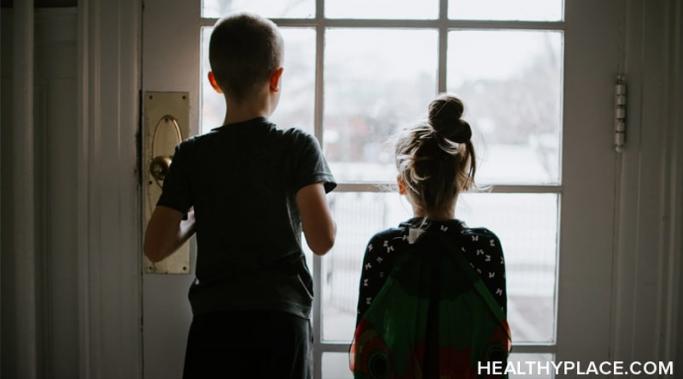When we're supporting someone with mental illness, I think it's very important to constantly examine how healthy our relationship with that person is. As my brother lives with chronic mental illness, I have first-hand experience of how unhealthy behaviors can easily creep into relationships, even with the best of intentions.
Mental Illness in the Family
Everyone has different coping methods that they choose to use, and it can sometimes seem like not all coping mechanisms are as helpful as others. There might come a time when you have to come to terms with and accept a loved one's preferred coping method. This is the story of a time I went through that situation.
I have been down a serious Google rabbit hole this past week on the subject of mental illness masking other conditions. The reason for this is personal -- my brother is currently undergoing diagnostic testing for autism. The more I think about this, the more it makes sense that mental illness could inhibit timely diagnosis of other issues.
Nothing is more important to me than the wellbeing of my loved ones, which is why I want the very best for them. When I notice that something could be improved in their lives, especially when it pertains to bettering a mental health situation for them, I desperately want to say something. Here are three things I keep in mind when making suggestions about mental health to my loved ones.
Respecting the boundaries of mentally ill loved ones should be a given, but sometimes we push these boundaries -- I've certainly been guilty of this in the past. Even when this is done out of good intent, I don't believe it is a fair thing to do. I have learned a lot on this topic through my experience with my brother, who has chronic mental health problems. Here's a bit of a reflection on those learnings.
It is common got people with mental illness in their family to help care for and provide support for mentally ill family members. The same is true for me, but I had to learn how to take care of my family from far away when I decided to move to a new state. Keep reading to find out how I do it.
Like many, I tuned into the Meghan and Harry interview last week, and I was particularly interested in Meghan's account of her mental illness being ignored by the royal family. Regardless of your thoughts on this particular couple, this is, sadly, a common issue in many families. Mental illness is ignored in families regularly, perhaps because we simply don't know how else to cope with it. I think we need to do better.
I find that it's easier to make difficult decisions when I have the support of my loved ones behind me. When I have to make decisions that they have difficulty supporting, the isolation I feel heightens my anxiety. I have learned three methods to take steps to cut down the anxiety resulting from disagreeing with my family so that I can still make the decisions that will benefit me.
I am experiencing heightened anxiety at the moment, as I am waiting for important medical results. I usually avoid sharing my anxiety with my family, but this time I decided to be more open. Telling my brother, who has chronic mental health issues, about what I am going through was surprisingly helpful.
My parents filed for a divorce when I was 10 years old. This experience uprooted the development of my childhood and aided in the decline of my mental health. Although the divorce caused me a lot of pain, I learned how to face it and move past it.









